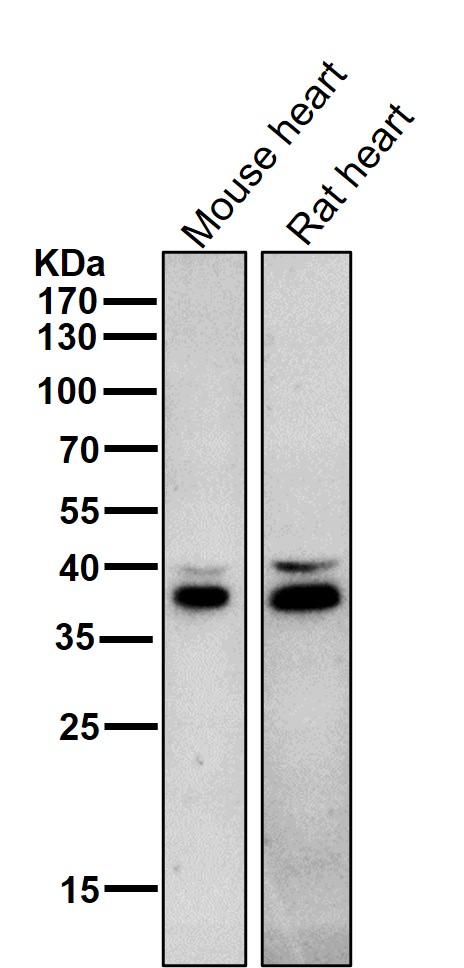
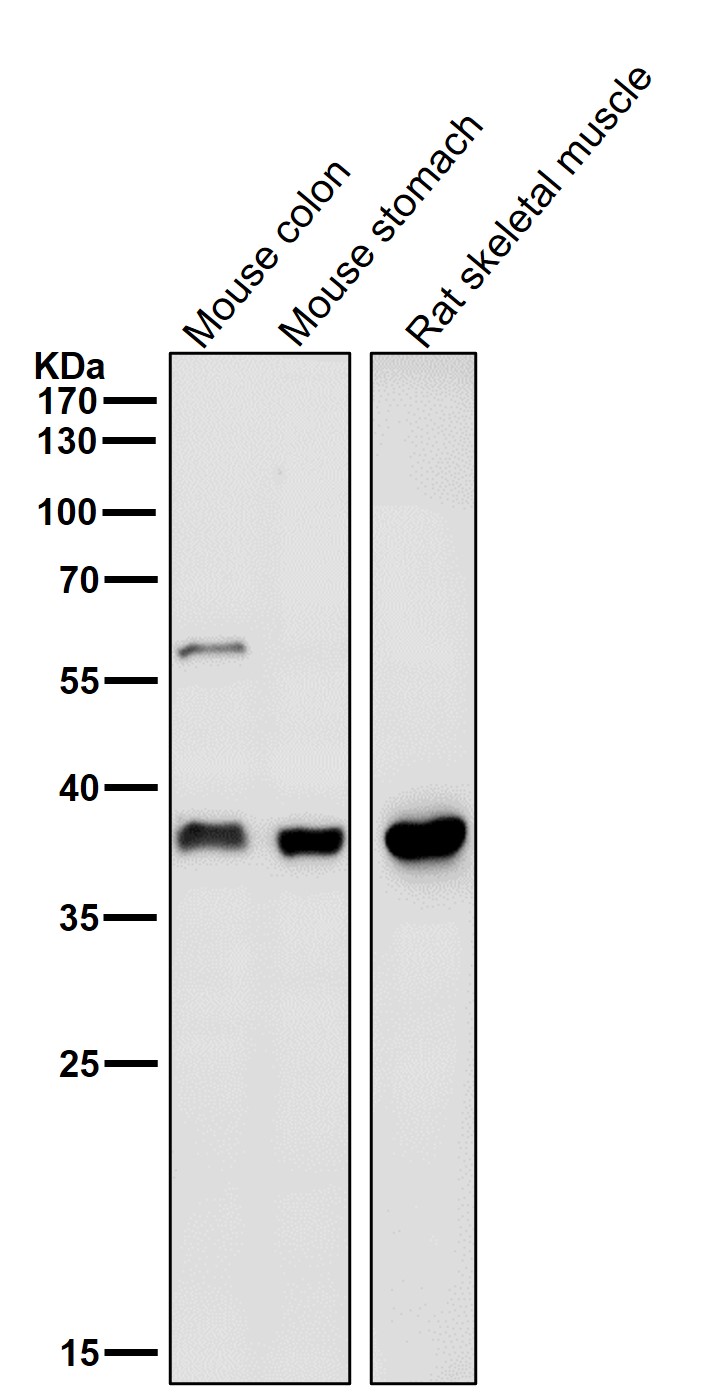
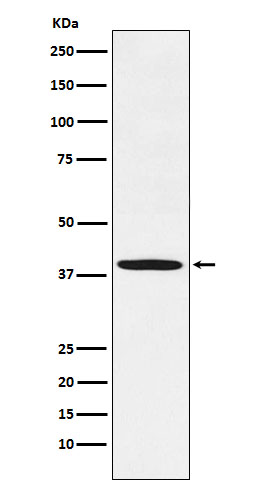
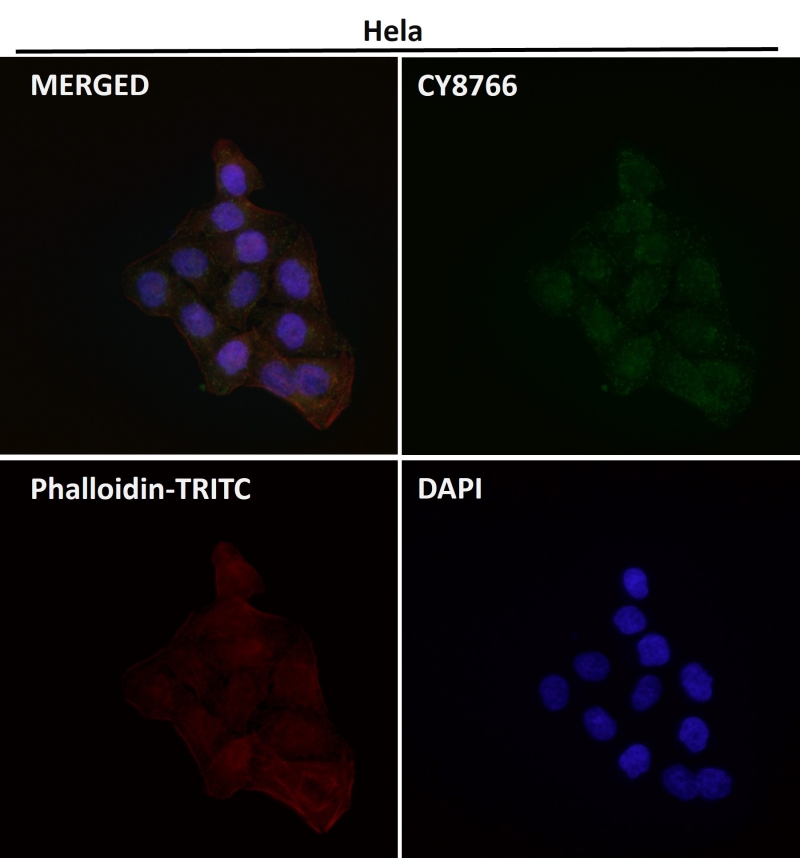
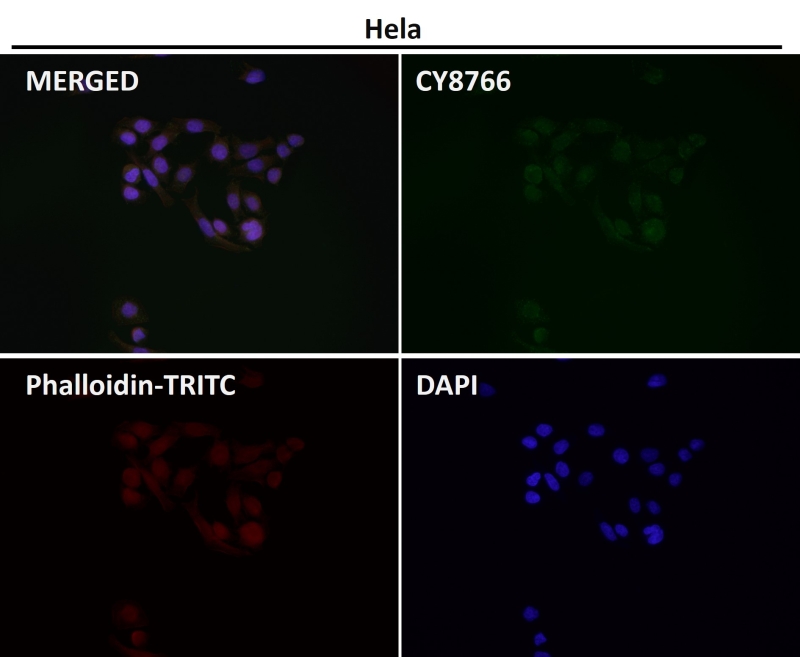
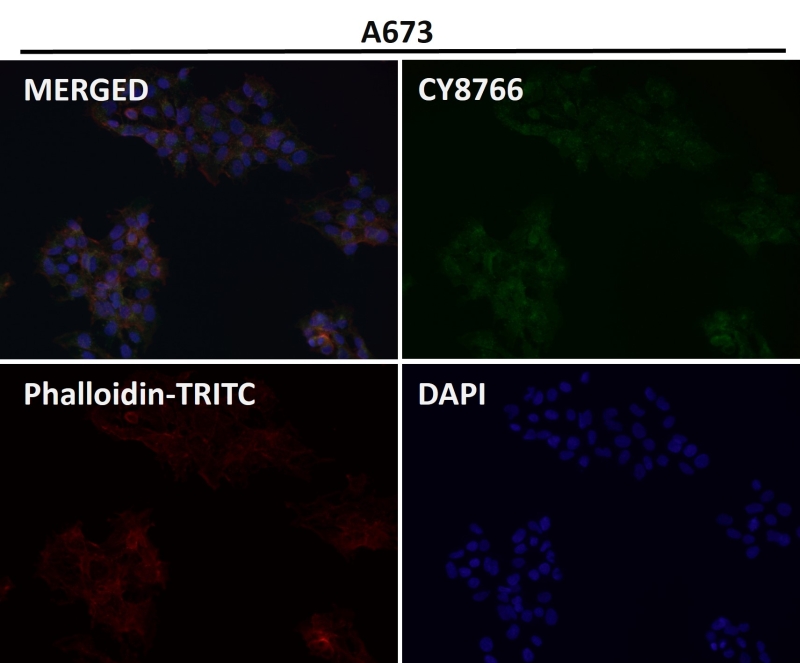
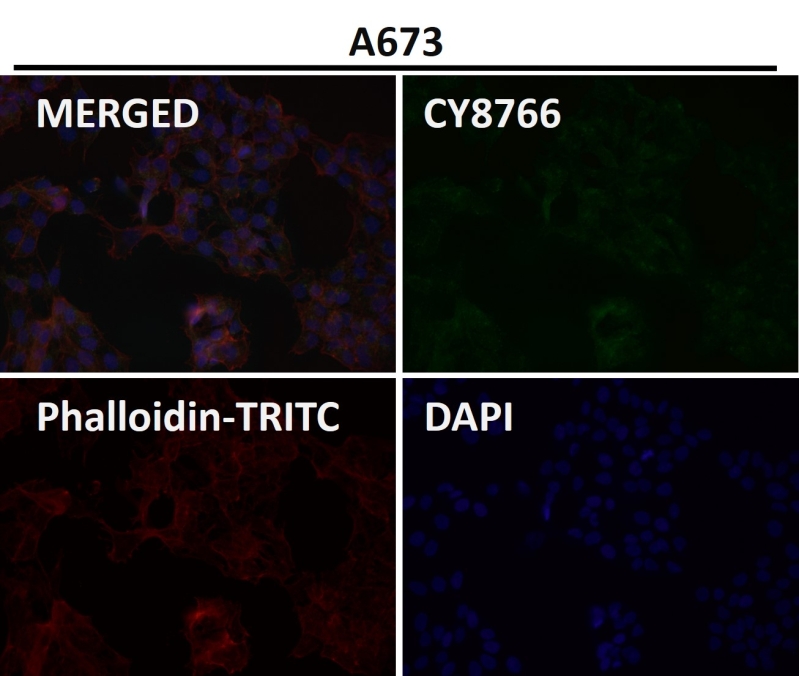
| WB | 1/1000-1/2000 | Human,Mouse,Rat |
| IF | 咨询技术 | Human,Mouse,Rat |
| IHC | 咨询技术 | Human,Mouse,Rat |
| ICC | 1/50-1/200 | Human,Mouse,Rat |
| FCM | 咨询技术 | Human,Mouse,Rat |
| Elisa | 咨询技术 | Human,Mouse,Rat |
| Aliases | Atrogin 1; ATROGIN1; fbxo25; FBXO32; MAFbx;;FBXO32 |
| WB Predicted band size | 42 kDa |
| Host/Isotype | Rabbit IgG |
| Antibody Type | Primary antibody |
| Storage | Store at 4°C short term. Aliquot and store at -20°C long term. Avoid freeze/thaw cycles. |
| Species Reactivity | Human,Mouse,Rat |
| Immunogen | A synthesized peptide derived from human FBXO32 |
| Formulation | Purified antibody in PBS with 0.05% sodium azide,0.05% BSA and 50% glycerol. |
+ +
以下是关于Fbx32(FBXO32/Atrogin-1)抗体的3篇参考文献及简要摘要:
1. **"Atrogin-1. a muscle-specific F-box protein highly expressed during muscle atrophy"**
- **作者**: Lecker, S. H., et al.
- **摘要**: 该研究首次鉴定了Fbx32(即Atrogin-1)作为肌肉特异性E3泛素连接酶组分,其在去神经或禁食诱导的骨骼肌萎缩中显著上调。研究通过抗体检测证实其在肌肉萎缩模型中的表达变化,并揭示其通过泛素-蛋白酶体系统调控蛋白质降解的机制。
2. **"FoxO3 controls autophagy in skeletal muscle in vivo"**
- **作者**: Sandri, M., et al.
- **摘要**: 本文探讨FoxO3转录因子在肌肉萎缩中调控自噬和泛素化途径的作用,利用Fbx32抗体证明Atrogin-1与自噬标志物的共表达关系,表明其在蛋白质降解双重机制(自噬与泛素化)中的关键角色。
3. **"The E3 ubiquitin ligase Atrogin-1/FBXO32 targets IRF4 for degradation to modulate myeloma cell survival"**
- **作者**: Nakayama, K., et al.
- **摘要**: 研究揭示了Fbx32在癌症中的非经典功能,通过抗体检测发现其介导转录因子IRF4的泛素化降解,从而抑制多发性骨髓瘤细胞增殖,为靶向治疗提供了新思路。
4. **"Skeletal muscle-specific ablation of mTORC1 induces paradoxical atrophy via Fbx32/Atrogin-1 upregulation"**
- **作者**: Bentzinger, C. F., et al.
- **摘要**: 通过肌肉特异性敲除mTORC1.研究发现其通过激活Fbx32表达导致肌肉萎缩,抗体实验表明Atrogin-1在此通路中的核心地位,揭示了营养信号与蛋白质降解的调控网络。
这些文献涵盖了Fbx32抗体在肌肉萎缩、癌症及代谢疾病研究中的应用,涉及分子机制探索及治疗潜力分析。
The Fbx32 antibody is designed to detect Fbx32. also known as Atrogin-1 or MAFbx (Muscle Atrophy F-box), a key protein involved in ubiquitin-mediated proteolysis. Identified in 2001 as part of the F-box protein family, Fbx32 acts as a substrate-recognition component within the SCF (Skp1-Cullin-F-box) E3 ubiquitin ligase complex. It plays a critical role in targeting specific proteins for degradation via the ubiquitin-proteasome system (UPS), particularly in muscle atrophy.
Fbx32 is upregulated during muscle wasting conditions, such as disuse, fasting, cancer cachexia, or neurodegenerative diseases. It facilitates the degradation of structural and regulatory proteins, including calcineurin and MyoD, disrupting muscle homeostasis. Studies highlight its interaction with signaling pathways like AKT/mTOR; suppressed AKT signaling de-represses FoxO transcription factors, inducing Fbx32 expression. This mechanism links Fbx32 to pathological muscle loss and cardiac hypertrophy.
Antibodies against Fbx32 are widely used in research to study protein turnover, muscle biology, and disease mechanisms. They enable detection of Fbx32 expression via Western blotting, immunohistochemistry, or immunofluorescence, aiding in exploring its role in conditions like muscular dystrophy, sarcopenia, or Alzheimer’s disease. These tools also contribute to therapeutic development, as modulating Fbx32 activity could mitigate atrophy-related pathologies.
Commercial Fbx32 antibodies are typically validated for specificity in human, mouse, or rat samples, with applications in both basic and translational research contexts.
×